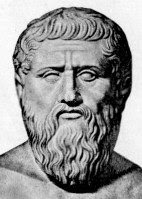After posting my story about finding a 2,800 year old man, I have become barraged by several people who claim to be skeptics. I believe skeptism is good for any topic, for I too am a skeptic. However the attacking of a discussion without merit under the cloak of a skeptic is not real skeptism but rather pseudoskepticism.
Wikipedia defines the term pseudoskepticism (or pseudo-skepticism) as “denotes thinking that appears to be skeptical but is not. The term is most commonly encountered in the form popularized by Marcello Truzzi, through his Journal of Scientific Exploration, where he defined pseudoskeptics as those who take "the negative rather than an agnostic position but still call themselves 'skeptics'"
These pseudoskeptics reveal themselves by not focusing on discussing the facts but by derailing or disheartening the researcher or claimant; often with quick judgments and name-calling without evidence to back up their counterclaims.
From Wikipedia about pseudoskepticism:
“In science, the burden of proof falls upon the claimant; and the more extraordinary a claim, the heavier is the burden of proof demanded. The true skeptic takes an agnostic position, one that says the claim is not proved rather than disproved. He asserts that the claimant has not borne the burden of proof and that science must continue to build its cognitive map of reality without incorporating the extraordinary claim as a new "fact." Since the true skeptic does not assert a claim, he has no burden to prove anything. He just goes on using the established theories of "conventional science" as usual. But if a critic asserts that there is evidence for disproof, that he has a negative hypothesis --saying, for instance, that a seeming psi result was actually due to an artifact--he is making a claim and therefore also has to bear a burden of proof.”
The tendency is to deny, rather than doubt:
. Double standards in the application of criticism
. The making of judgments without full inquiry
. Tendency to discredit, rather than investigate
. Use of ridicule or ad hominem attacks in lieu of arguments
. Pejorative labeling of proponents as 'promoters', 'pseudoscientists' or practitioners of 'pathological science.
. Presenting insufficient evidence or proof
. Assuming criticism requires no burden of proof
. Making unsubstantiated counter-claims
. Counter-claims based on plausibility rather than empirical evidence
. Suggesting that unconvincing evidence is grounds for dismissing it
Keep in mind, the true skeptic is a welcome asset to real research. The pseudoskeptic contributes nothing to research, but instead attempts to stifle the research in progress. Before examining or discussing the topic, the pseudoskeptic decries absurdity with shouts of “where’s the proof” and “show me the evidence”; even if there has been evidence already presented. For these disinformants, there is never enough proof or absolute proof; even though they can never offer any proof to back their counterclaims.
Messages of Hope from a 2,800 Year Old Man
-
On this weekend of hope, I thought I would offer everyone some of the
messages of inspiration and hope that I received from the remarkable man
whom I have ...
14 years ago





![Validate my Atom 1.0 feed [Valid Atom 1.0]](valid-atom.png)
No comments:
Post a Comment